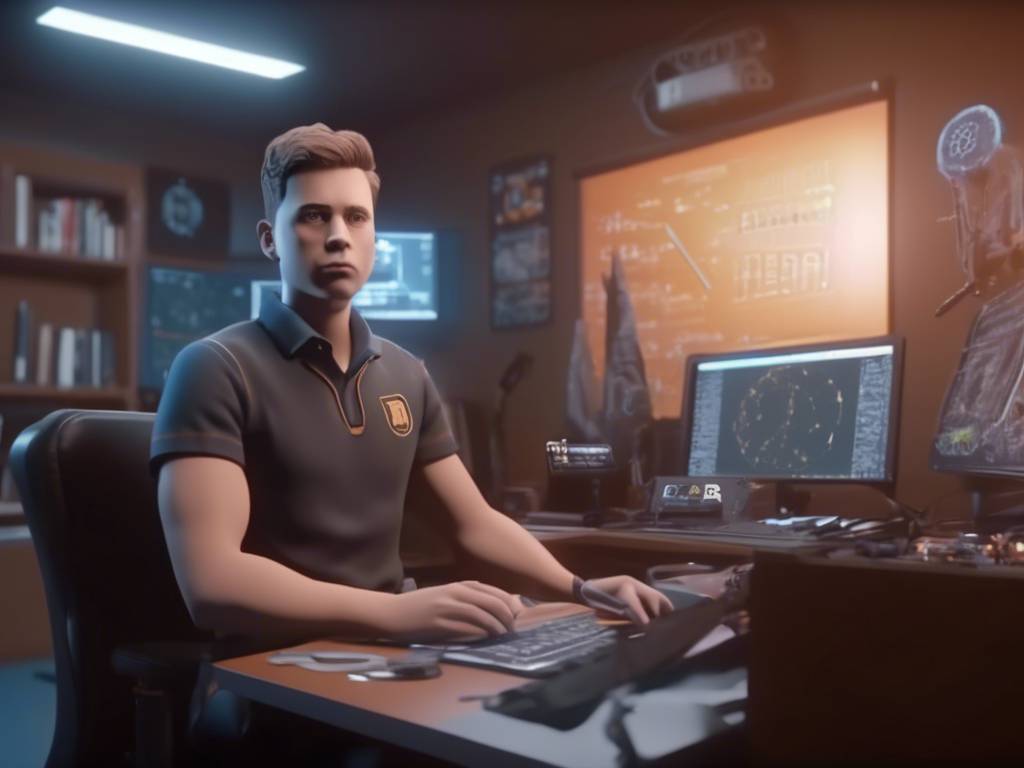The Voice of Joaquin Oliver Lives On: How AI Technology is Bringing Back the Voices of the Deceased
Joaquin Oliver was tragically killed in the Parkland school shooting, leaving his family devastated. However, with the help of generative AI technology, his voice can now be heard once again. This innovative use of artificial intelligence is not only giving a voice to the dead but also serving as a powerful tool in advocating for stricter gun control measures.
AI Technology Gives Voice to the Voiceless
Using AI technology, Joaquin Oliver’s voice has been recreated to deliver powerful messages calling for national action on gun violence. Other children who have fallen victim to gun violence have also had their voices digitally preserved through AI. This initiative serves as a unique way to honor the memories of these individuals and amplify their messages of change.
- AI technology has been instrumental in recreating the voices of those who have lost their lives to gun violence.
- This innovation allows for the continuation of advocacy efforts and keeps the memories of the deceased alive.
The Power of AI Voice Clones
Utilizing AI voice cloning technology, snippets of existing audio files can be used to generate artificial voices that closely resemble the original. The process involves inputting short audio samples with minimal background noise to create a lifelike voice clone. This groundbreaking technology has profound implications for preserving the voices and messages of those who have passed away.
- AI voice cloning technology requires only a few seconds of audio to create an accurate voice replica.
- The AI voice generator can replicate the voice of the deceased with remarkable accuracy, capturing the essence of their speech patterns.
Bringing Awareness to the Cause
The Olivers, founders of Change the Ref, have been using AI-generated voices to advocate for gun control. By resurrecting Joaquin’s voice and those of other victims, they hope to bring attention to the urgent need for stronger firearm regulations. The voices of the deceased serve as powerful advocates for change in a world plagued by gun violence.
- The Olivers’ efforts to use AI-generated voices to push for gun control reflect their unwavering commitment to the cause.
- Resurrecting the voices of the deceased victims amplifies the urgency of addressing the issue of gun violence in society.
Ethical Considerations and Future Implications
While AI voice cloning technology has provided a means for preserving the voices of the deceased, it also raises ethical concerns. The potential misuse of such technology to spread misinformation or hate speech underscores the importance of responsible usage. As AI tools continue to advance, it is crucial to consider the ethical implications of replicating voices and the impact it may have on society.
- The rise of AI voice cloning technology necessitates careful consideration of its ethical implications and potential consequences.
- Educating the public on the responsible use of AI-generated voices is essential to prevent misuse and safeguard against harmful outcomes.
Honoring the Legacy of Joaquin Oliver
By using AI technology to preserve Joaquin Oliver’s voice and advocate for gun control, his family is keeping his memory alive and fulfilling his dream of making a significant impact. While the technology offers a unique way to honor the deceased, the ultimate goal is to effect real change and prevent future tragedies from occurring.
- Preserving Joaquin Oliver’s voice through AI technology is a poignant tribute to his legacy and aspirations.
- By leveraging technology to advocate for action, the Olivers are ensuring that Joaquin’s voice continues to inspire positive change.
Hot Take: Embracing Technology for Social Good
The use of AI technology to resurrect the voices of the deceased for advocacy purposes represents a powerful intersection of innovation and social impact. While the ethical considerations surrounding AI voice cloning are valid, the potential for positive change and awareness-building cannot be understated. By harnessing the capabilities of AI for social good, we can honor the memories of those who have passed and work towards a safer, more compassionate society.



 By
By
 By
By
 By
By
 By
By
 By
By